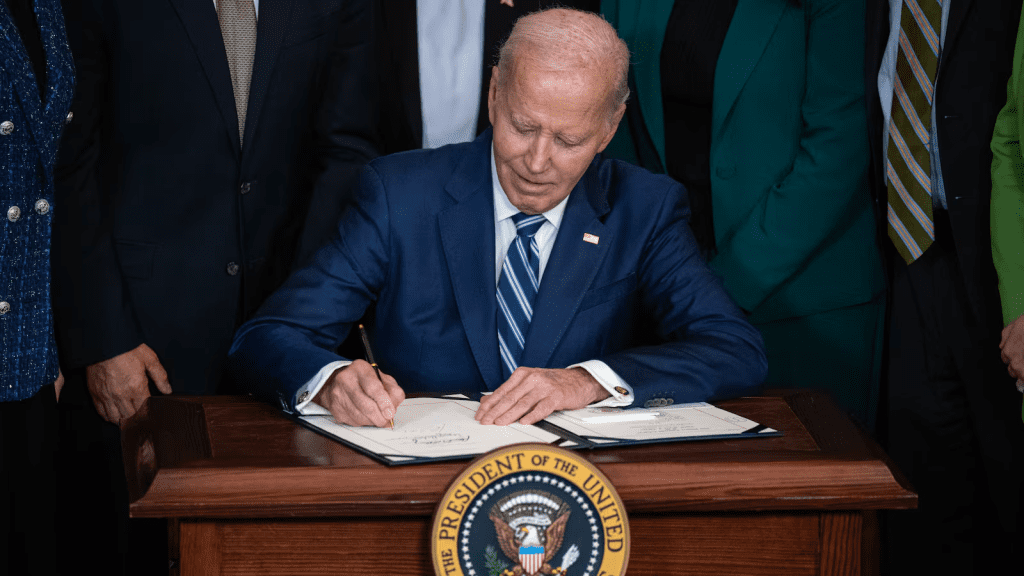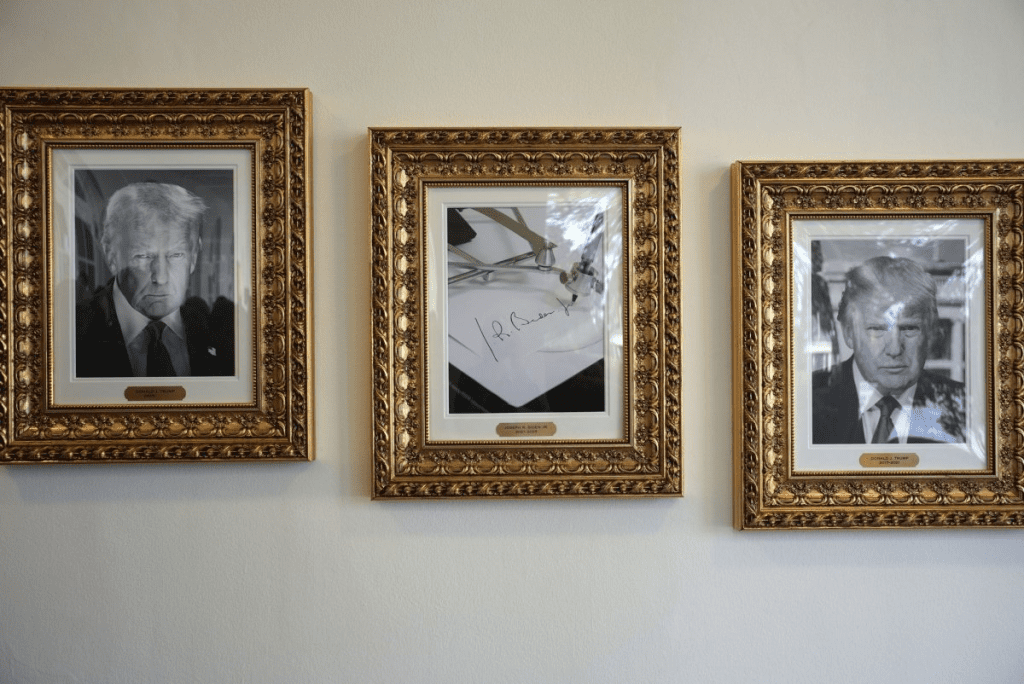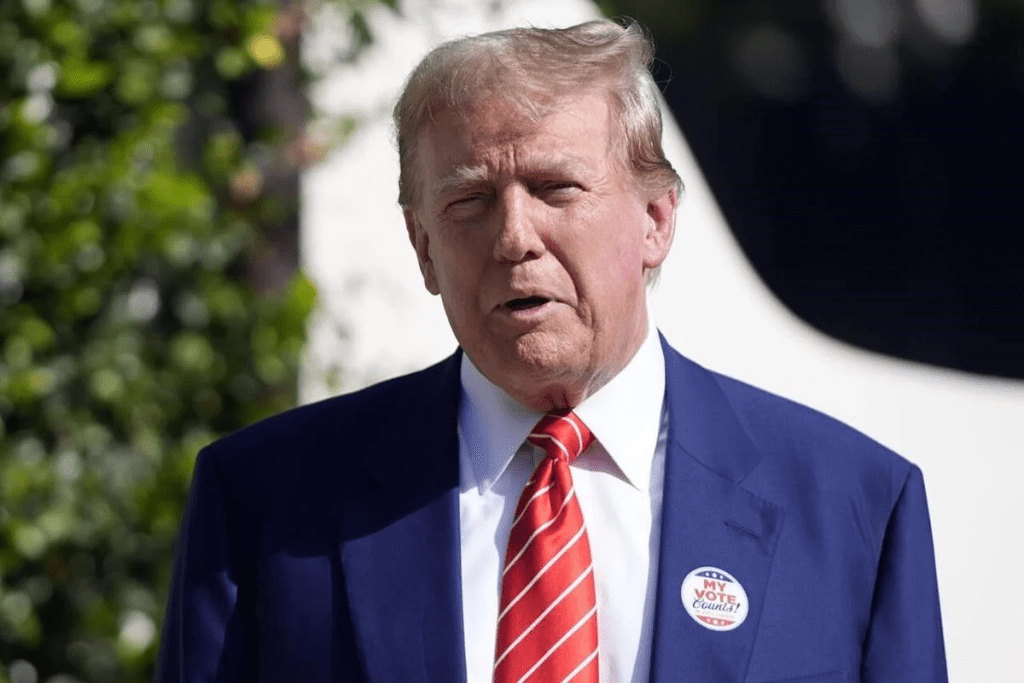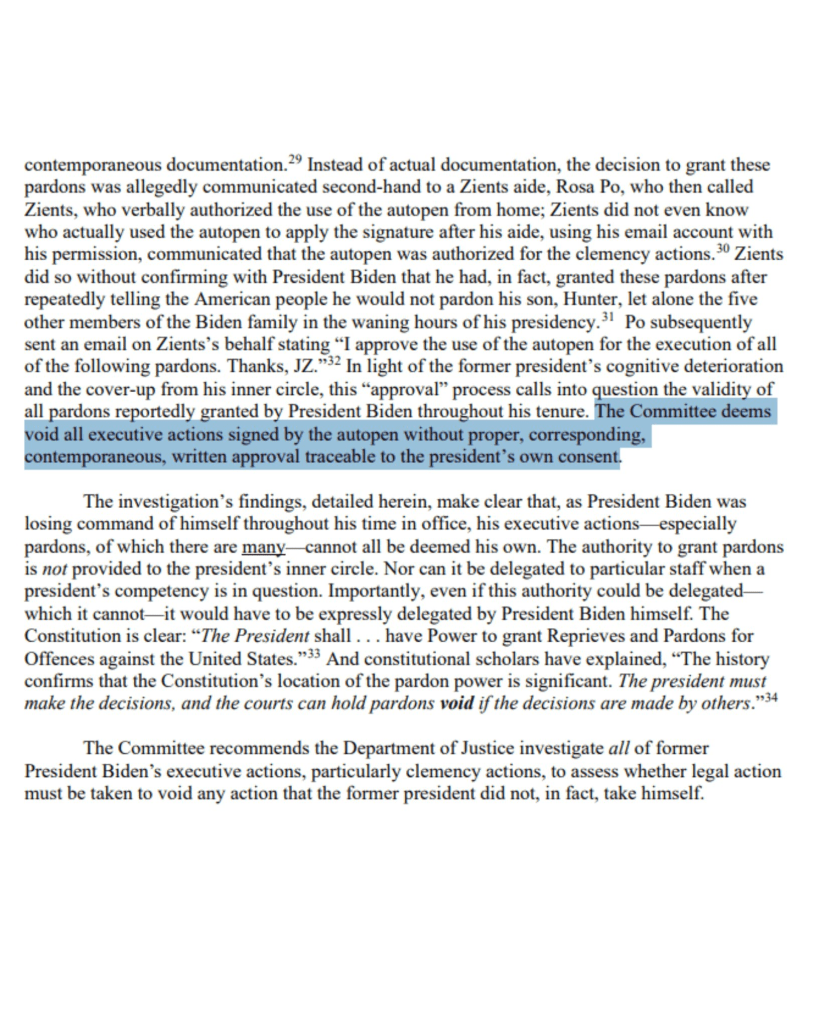Did President Biden’s Autopen Use Void His Executive Actions? A Deep Dive into the Oversight Committee’s Claims
In a dramatic turn of events, the United States House Committee on Oversight and Government Reform has declared that all executive actions taken by Joe Biden — including presidential pardons — are “null and void” due to alleged misuse of an autopen and lack of the President’s direct involvement. According to the committee’s release, several key executive actions performed by Biden White House staff and signed by an autopen are considered invalid, and they are demanding an immediate investigation by Attorney General Pam Bondi.

The findings stem from a months-long investigation launched amid growing concerns from Republicans that President Biden may have lacked capacity to execute his duties and that his aides may have signed off on documents without his knowledge. The committee’s report, titled “The Biden Autopen Presidency: Decline, Delusion, and Deception in the White House,” alleges that aides exercised presidential authority, used the autopen to sign documents in his name, and concealed key information about his physical and mental condition.
At the heart of the matter is the question of whether the autopen — a mechanical device that replicates someone’s signature, used by past presidents for routine tasks — can legally be used to sign important documents such as executive orders or pardons. Experts have long held differing views. On one side, a 2005 legal opinion from the Office of Legal Counsel concluded that the President may delegate the physical act of affixing his signature to a subordinate, such as by autopen, so long as the President authorizes the act. On the other side, some scholars argue that proxy signing outside the President’s physical presence undermines constitutional intent, especially when high-stakes actions are involved.

The Oversight Committee’s assertion is clear: because President Biden was allegedly absent from the decision-making loop, and because his physician and key aides invoked the Fifth Amendment when asked to testify, these executive actions may be invalid. The committee states that unless there is proof the president personally approved a given action, “those actions taken through use of the autopen” should be considered void. They also point to a new legislative push — the SIGN Pardons Act — which would forbid the use of automated signing devices for pardons or executive orders and deem any violation legally invalid.
From the White House’s side, counter-arguments are firm. President Biden’s team maintains that he made every decision during his presidency and that the use of an autopen is a well-established legal practice following a presidential decision. Multiple independent constitutional law experts have stated that the Constitution does not explicitly require the President’s personal handwritten signature for clemency, and that autopen-signed pardons remain legally valid.

Politically, the timing is explosive. Former President Donald J. Trump, who has long questioned Biden’s fitness for office, has seized on the autopen issue as further proof of what he calls a “cover-up” of Biden’s incapacity. The committee’s report, led by James Comer of Kentucky, includes letters to Attorney General Bondi and to the D.C. Board of Medicine requesting investigations into both the legality of the documents and the physician’s role in allegedly concealing the President’s condition.
Still, the path toward reversing any of these executive actions is murky. The Justice Department and the courts would be required to assess whether each individual action was unauthorized, void, or reversible. Legal scholars say the odds of broad invalidation are low because longstanding precedent accepts autopen use when properly authorized.
For supporters of President Trump and Republicans in Congress, the committee’s report provides strong political ammunition — a narrative suggesting a Democrat president may have failed to meet constitutional standards while aides stepped in behind the scenes. For critics, however, it appears as a politically driven inquiry built on circumstantial evidence and lacking conclusive proof. Some warn that it risks turning a procedural debate into another partisan flashpoint.

What happens next will test both law and politics. The committee will continue to press for a Department of Justice investigation, and Attorney General Bondi will face the decision of whether to open a full-scale probe — a move that could carry enormous constitutional and electoral consequences. Meanwhile, new legislation like the SIGN Pardons Act may permanently redefine how presidents authorize their most powerful decisions.
As the country watches, the controversy has become larger than one administration. It’s about constitutional limits, executive accountability, and the enduring question of what it truly means for a president to sign his name to history.

